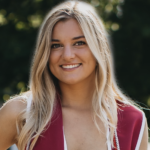Leadership and management are often used like synonyms, but they are actually two different things. Both are essential if you want to be successful in the workplace, and when utilized in tandem, can elevate you and your team to new heights. However, that’s not possible unless you know the manager and leader differences.
In this blog, we’re going to take a closer look at leadership vs management, the differences between them, and how to improve your leadership and management skills.
Understanding Leadership
First, let’s take a look at leadership. Merriam Webster defines leadership as: “to guide on a way especially by going in advance.” The key word here is guide. Leaders lead and guide their teams, teach them, and push them towards their goals. They set a clear vision and inspire team members to follow it.
However, there are also various styles of leadership, and those can create different organizational cultures in the workplace. Each of these styles has its own strengths and weaknesses, and it’s important to know which style of leadership you practice.
For example, transformational leaders tend to create unity, build bonds, inspire, and focus on transformational changes. These leaders can be a great fit for companies in need of a strong leader who will make significant changes and contributions. That said, they might be a bit overbearing for a company that is strongly independent and isn’t in need of sweeping change.
Another type of leadership is transactional leadership. This style of leadership is more focused on structure, following procedures, and results. These leaders often give rewards for great work, encouraging employees to do their best. This form of leadership is great when companies are disorganized and need to get back on track, but it can fall flat if employees don’t feel valued and cared about.
No matter which style of leadership you use, it’s important to understand its strengths and weaknesses. Knowing more about your style of leadership will help you compensate for its weaknesses and set yourself up for success.
Also, being able to set a clear vision and inspire others to follow it is essential regardless of your leadership style. Vision and inspiration are at the heart of leadership, so you have to be able to set goals and inspire others.
Five Characteristics of Effective Leaders
Before moving on to management, let’s briefly look at some characteristics of effective leaders. These characteristics are what make leaders effective and inspirational figures, and they are key to being a great leader.
- Authenticity. Leaders need to be genuine. People who are true to themselves and their values, are honest, and can communicate openly with others are much more likely to inspire others and become leaders.
- Adaptability. Being a leader means you will have to deal with some turbulence along the way. As a leader, you need to be able to adapt and overcome whatever challenges come your way.
- Emotional intelligence. A big part of leading your team is having the emotional intelligence to understand you and your team members’ emotions. If you can recognize and influence the emotions of yourself and others in a positive way, you will be able to be a more effective leader.
- Confidence. If you want to inspire and lead others, you have to be confident. People want confident leaders, and it’s your job to confidently lead your team to success.
- Integrity. Leaders need to be trustworthy and accountable. If your leader is honest, owns up to their mistakes, and stands by their values, they will be much more inspiring than a leader who doesn’t.
These characteristics aren’t everything you need to be a great leader, but they are a good start. They are some of the most important characteristics of a good leader, so make sure you focus on building the right skills and traits for leadership.
Understanding Management
Now, let’s shift to management. Management can be defined as: “to handle or direct with a degree of skill.” Where leaders are more focused on inspiring others, creating a vision, and broader company-wide issues, managers are more directly involved. Managers give instructions, follow rules, and focus on the day to day challenges, and leaders are focused on instructing, creating new rules, and the long-term.
More specifically, managers serve various functions in the workplace. For example, they are typically involved with daily planning. They are typically responsible for ensuring that all necessary work is done in a timely manner, goals are met on time, etc.
They also do the organizing and controlling. If there’s a big project coming up that will require employees to move around, managers are the ones doing it. If a certain department needs help meeting a certain deadline, the manager can come in and help make sure it gets done.
One of the most important things a manager can do is ensure work is done efficiently and effectively. They directly oversee work as it’s completed, so it’s their responsibility to make sure it’s done quickly and efficiently.
Characteristics of Effective Managers
As with leadership, let’s take a look at the characteristics of effective managers.
- Goal oriented. Good managers are goal oriented and focused on achieving their goals. They need to be goal oriented so they can ensure the team meets those goals.
- Organized. Organization is a key part of management, so managers need to be highly organized and prepared for any situation.
- Problem solvers. Managers are often responsible for solving problems of all types. It’s imperative that managers can identify and solve problems quickly and effectively.
- Leaders. Though they are managers, they also need to be leaders too. Managers work directly with their teams, so leadership is a key skill as well.
- Good communication skills. Communication skills can make or break a manager. Managers need to be able to communicate clearly and openly with their employees so they can work together more effectively.
Again, this list isn’t exhaustive, but these are some of the key traits managers should have. With these skills, being a great manager is possible.
Difference Between Leadership and Management
Leadership and management may be closely related, but they are distinct from one another. Leaders inspire and motivate while managers organize and monitor. The key difference between leadership and management is that leaders are more focused on the big picture, and managers are more focused on the day-to-day.
However, both of them can benefit or harm teams depending on the situation. For example, too much focus on management without leadership can turn into micromanagement and lead to burnout. Leaders need to be there to keep focus, ensure the company culture is strong, and inspire employees to do their best.
Conversely, too much leadership without management can also have negative consequences. It can lead to disorganization and underwhelming results as people lose focus on daily responsibility.
Both leadership and management are essential, and you can’t have one without the other. Though they may be different, they are closely related and can help complement each other.
Synergy Between Leadership and Management
There may be differences between leading vs managing, but there is also synergy between them. A successful team needs both leadership and management working together. When leaders and managers cooperate, they can inspire and direct their teams to do the best work possible.
For example, leaders and managers can work together to achieve common goals. Leaders can set the vision and create the goal everyone is striving towards. Managers can break that goal down into actionable steps, making it possible for employees to work towards that goal. Without the leader there is no vision, and without the manager there is no plan to achieve the vision. But together, they can set the vision and achieve their goals.
Many companies end up focusing on either leadership and management, but they should be focusing on both. There are numerous benefits of promoting a culture that values both leadership and management skill sets, such as increased efficiency, employee satisfaction, engagement, retention, and more.
And though it may not seem like the case, it’s possible to be both a leader and a manager. As with most things at work, it comes down to your skills. If you focus on developing skills and traits that will make you a great leader and manager, you can accomplish both.
Team Building Exercises to Strengthen Leadership and Management
If you’re looking to strengthen your leadership and management skills, team building exercises are a great resource. They can help you improve specific skills that are relevant to leadership and management, like communication, collaboration, and problem solving.
Our Leadership DNA program for example helps measure the impact, strengths and weaknesses of those working as leaders or managers. The program can help you better relationships, improve communication, and refine your leadership skills.
Another example are escape rooms. Though they’re fun, they are also incredibly valuable when it comes to developing your skills as a leader or manager. They can help learn to better lead and manage your team through stressful situations, as well as improve your communication skills.
We also have other events focused solely on leadership, such as our Leadership Stories event. This event can help build leadership skills across your entire organization, helping you develop leaders who can drive your business towards success.
Though the events are fun, an important aspect of team building exercises is what comes after. When the exercise or event is done, you should debrief and reflect. This gives participants a chance to internalize what they learned and how they can utilize it in their work. Taking them to reflect on the event and think of how it relates to real-life is an essential part of team building.
Strengthen Your Leadership and Management Skills
Leadership and management are both key aspects of a successful workforce. They may seem the same, but they are actually separate concepts. Leaders set the vision, and managers turn that into a followable plan of action. And though it’s easy to see it as “leadership vs management,” it really should be a combination of the two working together to achieve their goals. Strengthen leadership and management within your
with the help of TeamBonding. We have many events that are focused on leadership and management that can help you improve your skills and become more successful. Get in touch with us today to get started.















